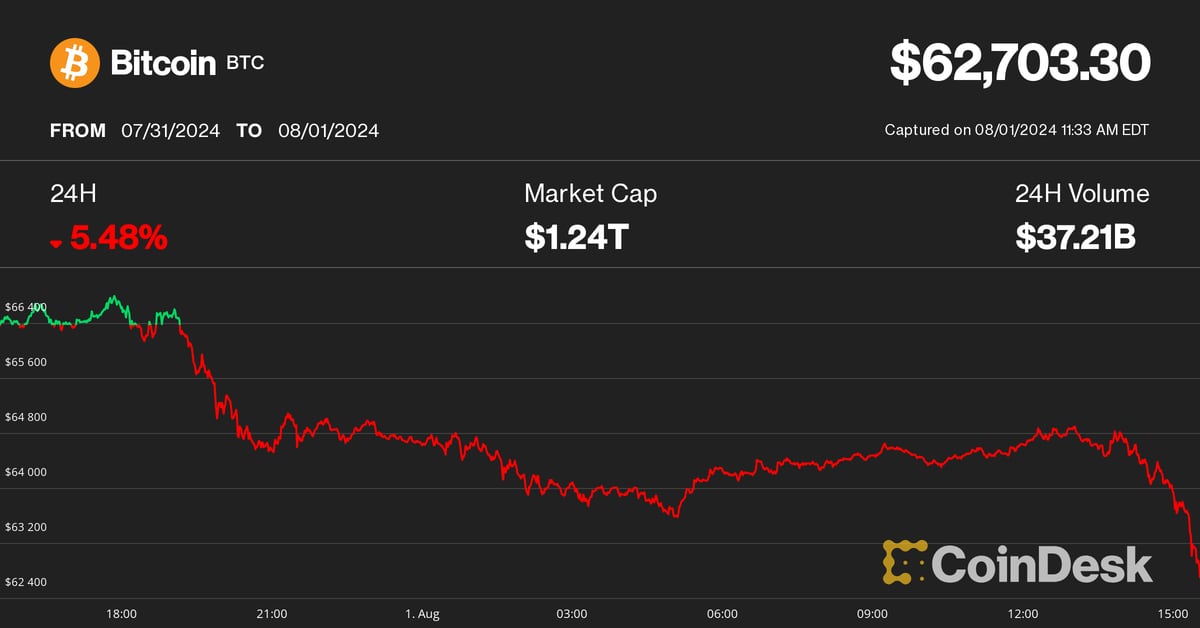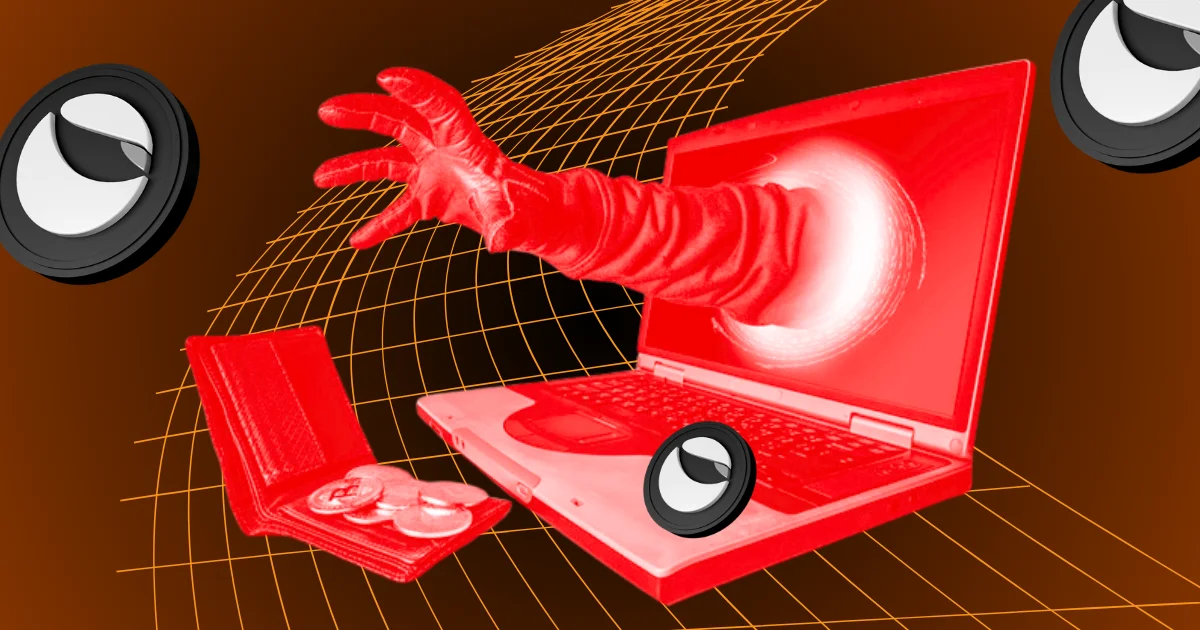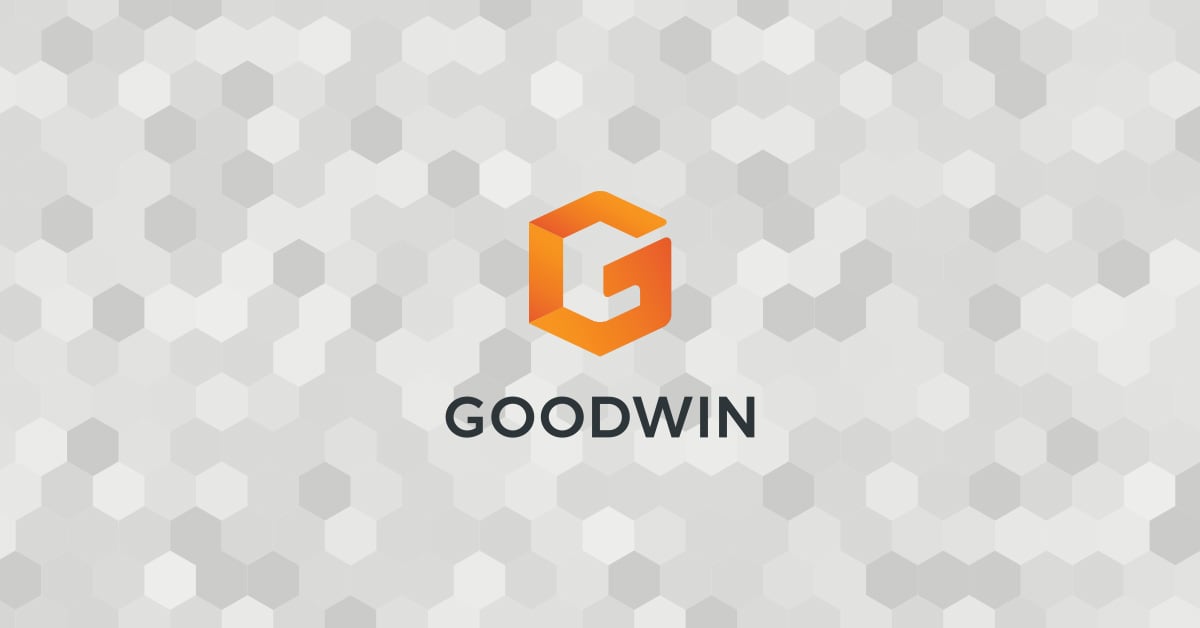Blockchain
Passwords are obsolete, go blockchain

Before you check your email, Instagram, or bank account, the first thing you probably do is enter your password. This amounts to little more than muscle memory because most people have already absorbed their passwords into their brains just like they do with a relative’s birthday or the score stats of their favorite athlete.
For a variety of reasons, many people choose not to use passwords at all when it comes to their devices, either because they feel they have nothing of value on their computers or because in their eyes it is unlikely that a hacker would do so. Others justify a minimal password, which might mean setting their laptop’s home screen credentials to “123456,” reusing an old login, or making small changes.
This type of negligence may not have had any consequences yet, but it is quite dangerous to not address it. Ask yourself a simple question: how similar is that password to the one protecting your most valuable materials? Unfortunately, the answer is usually that they are nearly identical.
Humans have a hard time remembering complex passwords for all their favorite apps, platforms, and accounts, so if they aren’t identical, they’re often pretty similar. Few people have the memory to hold dozens of long-tail phrases, and that presents a huge security risk as computing technology becomes more powerful. Fortunately, one of the BlockchainMore relevant uses will make these concepts obsolete.
What’s wrong with passwords?
Taking a strong password and changing it slightly isn’t a bad deterrent for humans trying to break into your device, but humans aren’t the ones doing the breaking. Using passwords requires us to remember them, which automatically means they’re easy enough for most computers to guess, given enough time. (See also: Can Bitcoin be hacked?)
Computers and their powerful algorithms can use brute force tactics to guess thousands of potential letter and number combinations in seconds, so it doesn’t matter how clever you think your password is. However, an easily guessable password is the easiest trap for most scammers. There are plenty of other ways they can get their hands on it and, from there, access the rest of your accounts and assets.
Phishing emails are designed to look like they’re from legitimate institutions and may trick you into “changing” your password or installing keylogging software that spies on your keystrokes. Regardless of how they do it, all of these methods are designed to capture your password and then uncover a breadcrumb trail to your other sensitive information. This is a threat to individuals, to be sure, but for businesses that still use passwords for work terminals, the risk is even greater. (See also: What is a “phishing scam” and how can you avoid it?)
When it comes down to it, the real problem with passwords is that they still exist. However, there were few alternatives available until blockchain began to show signs of maturity recently. (See also: Cyber Wars: How the US Stock Market Could Be Hacked)
Credentials courtesy of Blockchain
Blockchain is now spreading like wildfire through the tech mainstream, with developers and entrepreneurs alike marveling at its powerful decentralized methodology. One of the first proposed applications of blockchain was to create something called Self-sovereign IDthat uses encryption and network cohesion to change the way people identify themselves online.
The lowest layer of the blockchain is the public ledger that records all data transactions on its network and shares them in real time among active nodes. However, there is no central authority that organizes them. Instead, algorithmic consensus determines the veracity of transactions and their order in the ledger, creating a type of shared authority over what happens on the network.
Additionally, blockchain uses the highest standards of cryptography to create a layer between an individual’s public blockchain address and their true identity. A user is assigned a unique private ID, which is paired with the public ID that represents them on the chain.
When receiving data, such as in the form of a cryptocurrency exchange or message, the recipient must use their private ID to access it. This double-layer defense means that hackers have no way to corrupt the network, thanks to decentralization, but also to link identifying information to a single transaction or account.
Putting Next-Generation Passwords to the Test
Blockchain startups are already working to put the idea of a self-sovereign ID into practice, helping to make passwords a thing of the past. Companies like SelfKey are using this new authentication paradigm to give citizens of any country a standardized way to request and verify important documents across borders. Other companies like LastPassthat store encrypted passwords in private accounts, have attracted users’ attention in recent years.
Applying for a passport, opening a bank account, starting a charity, and other common processes are easier to manage when an individual has their own digital ID and can use it freely and securely, no matter how diverse the elements of their livelihood.
STAY It is a new generation access protection, and whose The token sale has reached its hard cap of $20 million in February — distills the most important ideas of blockchain into a streamlined application that serves a single, powerful purpose: the ability to log into any service more securely, especially since there are no passwords involved. Instead, the REMME blockchain stores a user’s unique device certificates on its decentralized network, so when they want to access a web property or application, they simply click the REMME button to log in. The application checks the registry to verify that the correct device certificate is pinging for entry, and immediately grants entry to the account.
Two-factor authentication strengthens the agreement, so if a user plausibly wanted to access their bank account, for example, they would have to press the button on their bank’s page but also confirm from their phone. Such a service is leagues away from the current generation password managers like LastPass or No Passwordand is already gaining popularity on the market.
These are some of the most advanced examples available of how blockchain is revolutionizing the idea of digital credentials. Users will no longer have to reconcile their memory with their security, nor will they trust their login information to centralized authorities. The result is a more secure way to manage our digital existence and a simple product that combats existing exploits in a simplified package. With these types of solutions on the horizon, it is only a matter of time before attacks like the one perpetrated against Equifax Servers last year they exist only in the dustbin of history. (See more: Have I Been Hacked? Find Out If the Equifax Breach Affects You)
Investing in cryptocurrencies and Initial Coin Offerings (“ICOs”) is highly risky and speculative, and this article is not a recommendation by Investopedia or the author to invest in cryptocurrencies or ICOs. Since each individual’s situation is unique, you should always consult with a qualified professional before making any financial decisions. Investopedia makes no representations or warranties as to the accuracy or timeliness of the information contained herein. The author owns cryptocurrencies as of the date this article was written.
Blockchain
Bitcoin (BTC) Price Crashes as Donald Trump’s Win Odds Dip

Markets received nominally good news on Thursday morning, with the US ISM manufacturing PMI for July falling much more than economists expected, sending interest rates to multi-month lows across the board. Additionally, initial jobless claims in the US jumped to their highest level in about a year. Taken together, the data adds to the sentiment that the US is on the verge of a cycle of monetary easing by the Federal Reserve, which is typically seen as bullish for risk assets, including bitcoin.
Blockchain
Terra Blockchain Reboots After Reentry Attack Leads to $4M Exploit

Please note that our Privacy Policy, terms of use, cookiesAND do not sell my personal information has been updated.
CoinDesk is a awarded press agency that deals with the cryptocurrency sector. Its journalists respect a rigorous set of editorial policiesIn November 2023, CoinDesk has been acquired from the Bullish group, owner of Bullisha regulated digital asset exchange. Bullish Group is majority owned by Block.one; both companies have interests in a variety of blockchain and digital asset businesses and significant digital asset holdings, including bitcoin. CoinDesk operates as an independent subsidiary with an editorial board to protect journalistic independence. CoinDesk employees, including journalists, are eligible to receive options in the Bullish group as part of their compensation.
Blockchain
$6.8M Stolen, ASTRO Collapses 60%

In the latest news in the blockchain industry, there has been a turn of events that has severely affected Terra and its users and investors, with the company losing $6.8 million. The attack, which exploited a reentry vulnerability in the network’s IBC hooks, raises questions about the security measures of the once celebrated blockchain protocol.
A web3 security company, Cyvers Alerts reported that the exploit occurred on July 31st and caused the company to lose 60 million ASTRO, 3.5 million USDC500,000 USDTand 2. 7 BitcoinThe flaw was discovered in April and allows cybercriminals to make payments non-stop by withdrawing money from the network.
Earth’s response
Subsequently, to the hack employed on the Terra blockchain, its official X platform declared the Suspension network operations for a few hours to apply the emergency measure. Finally in its sendTerra’s official account agreed, sharing that its operations are back online: the core transactions that make up the platform are now possible again.
However, the overall value of the various assets lost in the event was unclear.
Market Impact: ASTRO Crashes!
The hack had an immediate impact on the price of ASTRO, which dropped nearly 60% to $0.0206 following the network shutdown. This sharp decline highlights the vulnerability of token prices to security breaches and the resulting market volatility.
This incident is not the first time Terra has faced serious challenges. Earlier this year, the blockchain encountered significant problems that called into question its long-term viability. These repeated incidents underscore the need for stronger security measures to protect users’ assets and maintain trust in the network.
The recent Terra hack serves as a stark reminder of the ongoing security challenges in the blockchain space. As the platform works to regain stability, the broader crypto community will be watching closely.
Read also: Record Cryptocurrency Theft: Over $1 Billion Stolen in 2024
This is a major setback for Terra. How do you think this will impact the blockchain industry?
Blockchain
Luxembourg proposes updates to blockchain laws | Insights and resources

On July 24, 2024, the Ministry of Finance proposed Blockchain Bill IVwhich will provide greater flexibility and legal certainty for issuers using Distributed Ledger Technology (DLT). The bill will update three of Luxembourg’s financial laws, the Law of 6 April 2013 on dematerialised securitiesTHE Law of 5 April 1993 on the financial sector and the Law of 23 December 1998 establishing a financial sector supervisory commissionThis bill includes the additional option of a supervisory agent role and the inclusion of equity securities in dematerialized form.
DLT and Luxembourg
DLT is increasingly used in the financial and fund management sector in Luxembourg, offering numerous benefits and transforming various aspects of the industry.
Here are some examples:
- Digital Bonds: Luxembourg has seen multiple digital bond issuances via DLT. For example, the European Investment Bank has issued bonds that are registered, transferred and stored via DLT processes. These bonds are governed by Luxembourg law and registered on proprietary DLT platforms.
- Fund Administration: DLT can streamline fund administration processes, offering new opportunities and efficiencies for intermediaries, and can do the following:
- Automate capital calls and distributions using smart contracts,
- Simplify audits and ensure reporting accuracy through transparent and immutable transaction records.
- Warranty Management: Luxembourg-based DLT platforms allow clients to swap ownership of baskets of securities between different collateral pools at precise times.
- Tokenization: DLT is used to tokenize various assets, including real estate and luxury goods, by representing them in a tokenized and fractionalized format on the blockchain. This process can improve the liquidity and accessibility of traditionally illiquid assets.
- Tokenization of investment funds: DLT is being explored for the tokenization of investment funds, which can streamline the supply chain, reduce costs, and enable faster transactions. DLT can automate various elements of the supply chain, reducing the need for reconciliations between entities such as custodians, administrators, and investment managers.
- Issuance, settlement and payment platforms:Market participants are developing trusted networks using DLT technology to serve as a single source of shared truth among participants in financial instrument investment ecosystems.
- Legal framework: Luxembourg has adapted its legal framework to accommodate DLT, recognising the validity and enforceability of DLT-based financial instruments. This includes the following:
- Allow the use of DLT for the issuance of dematerialized securities,
- Recognize DLT for the circulation of securities,
- Enabling financial collateral arrangements on DLT financial instruments.
- Regulatory compliance: DLT can improve transparency in fund share ownership and regulatory compliance, providing fund managers with new opportunities for liquidity management and operational efficiency.
- Financial inclusion: By leveraging DLT, Luxembourg aims to promote greater financial inclusion and participation, potentially creating a more diverse and resilient financial system.
- Governance and ethics:The implementation of DLT can promote higher standards of governance and ethics, contributing to a more sustainable and responsible financial sector.
Luxembourg’s approach to DLT in finance and fund management is characterised by a principle of technology neutrality, recognising that innovative processes and technologies can contribute to improving financial services. This is exemplified by its commitment to creating a compatible legal and regulatory framework.
Short story
Luxembourg has already enacted three major blockchain-related laws, often referred to as Blockchain I, II and III.
Blockchain Law I (2019): This law, passed on March 1, 2019, was one of the first in the EU to recognize blockchain as equivalent to traditional transactions. It allowed the use of DLT for account registration, transfer, and materialization of securities.
Blockchain Law II (2021): Enacted on 22 January 2021, this law strengthened the Luxembourg legal framework on dematerialised securities. It recognised the possibility of using secure electronic registration mechanisms to issue such securities and expanded access for all credit institutions and investment firms.
Blockchain Act III (2023): Also known as Bill 8055, this is the most recent law in the blockchain field and was passed on March 14, 2023. This law has integrated the Luxembourg DLT framework in the following way:
- Update of the Act of 5 August 2005 on provisions relating to financial collateral to enable the use of electronic DLT as collateral on financial instruments registered in securities accounts,
- Implementation of EU Regulation 2022/858 on a pilot scheme for DLT-based market infrastructures (DLT Pilot Regulation),
- Redefining the notion of financial instruments in Law of 5 April 1993 on the financial sector and the Law of 30 May 2018 on financial instruments markets to align with the corresponding European regulations, including MiFID.
The Blockchain III Act strengthened the collateral rules for digital assets and aimed to increase legal certainty by allowing securities accounts on DLT to be pledged, while maintaining the efficient system of the 2005 Act on Financial Collateral Arrangements.
With the Blockchain IV bill, Luxembourg will build on the foundations laid by previous Blockchain laws and aims to consolidate Luxembourg’s position as a leading hub for financial innovation in Europe.
Blockchain Bill IV
The key provisions of the Blockchain IV bill include the following:
- Expanded scope: The bill expands the Luxembourg DLT legal framework to include equity securities in addition to debt securities. This expansion will allow the fund industry and transfer agents to use DLT to manage registers of shares and units, as well as to process fund shares.
- New role of the control agent: The bill introduces the role of a control agent as an alternative to the central account custodian for the issuance of dematerialised securities via DLT. This control agent can be an EU investment firm or a credit institution chosen by the issuer. This new role does not replace the current central account custodian, but, like all other roles, it must be notified to the Commission de Surveillance du Secteur Financier (CSSF), which is designated as the competent supervisory authority. The notification must be submitted two months after the control agent starts its activities.
- Responsibilities of the control agent: The control agent will manage the securities issuance account, verify the consistency between the securities issued and those registered on the DLT network, and supervise the chain of custody of the securities at the account holder and investor level.
- Simplified payment processesThe bill allows issuers to meet payment obligations under securities (such as interest, dividends or repayments) as soon as they have paid the relevant amounts to the paying agent, settlement agent or central account custodian.
- Simplified issuance and reconciliationThe bill simplifies the process of issuing, holding and reconciling dematerialized securities through DLT, eliminating the need for a central custodian to have a second level of custody and allowing securities to be credited directly to the accounts of investors or their delegates.
- Smart Contract Integration:The new processes can be executed using smart contracts with the assistance of the control agent, potentially increasing efficiency and reducing intermediation.
These changes are expected to bring several benefits to the Luxembourg financial sector, including:
- Fund Operations: Greater efficiency and reduced costs by leveraging DLT for the issuance and transfer of fund shares.
- Financial transactions: Greater transparency and security.
- Transparency of the regulatory environment: Increased attractiveness and competitiveness of the Luxembourg financial centre through greater legal clarity and flexibility for issuers and investors using DLT.
- Smart Contracts: Potential for automation of contractual terms, reduction of intermediaries and improvement of transaction traceability through smart contracts.
Blockchain Bill IV is part of Luxembourg’s ongoing strategy to develop a strong digital ecosystem as part of its economy and maintain its status as a leading hub for financial innovation. Luxembourg is positioning itself at the forefront of Europe’s growing digital financial landscape by constantly updating its regulatory framework.
Local regulations, such as Luxembourg law, complement European regulations by providing a more specific legal framework, adapted to local specificities. These local laws, together with European initiatives, aim to improve both the use and the security of projects involving new technologies. They help establish clear standards and promote consumer trust, while promoting innovation and ensuring better protection against potential risks associated with these emerging technologies. Check out our latest posts on these topics and, for more information on this law, blockchain technology and the tokenization mechanism, do not hesitate to contact us.
We are available to discuss any project related to digital finance, cryptocurrencies and disruptive technologies.
This informational piece, which may be considered advertising under the ethics rules of some jurisdictions, is provided with the understanding that it does not constitute the rendering of legal or other professional advice by Goodwin or its attorneys. Past results do not guarantee a similar outcome.
-

 Regulation11 months ago
Regulation11 months agoRipple CTO and Cardano founder clash over XRP’s regulatory challenges ⋆ ZyCrypto
-

 Regulation10 months ago
Regulation10 months agoNancy Pelosi Considers Supporting Republican Crypto Bill FIT21 – London Business News
-

 Videos11 months ago
Videos11 months agoCryptocurrency News: Bitcoin, ETH ETF, AI Crypto Rally, AKT, TON & MORE!!
-

 Regulation11 months ago
Regulation11 months agoBitcoin’s future is ‘bleak’ and ripe for regulation, says lead developer
-

 News8 months ago
News8 months agoAave Price Increases Following Whales Accumulation and V3.1 Launch
-

 Regulation8 months ago
Regulation8 months agoSouth Korea Imposes New ‘Monitoring’ Fees on Cryptocurrency Exchanges
-

 Regulation8 months ago
Regulation8 months agoA Blank Sheet for Cryptocurrencies: Kamala Harris’ Regulatory Opportunity
-

 Regulation8 months ago
Regulation8 months agoCryptocurrency Regulations in Slovenia 2024
-

 News11 months ago
News11 months agoThe trader earned $46 million with PEPE after reaching a new ATH
-

 Regulation10 months ago
Regulation10 months agoCrypto needs regulation to thrive: Tyler Cowen
-

 Blockchain11 months ago
Blockchain11 months agoSolana ranks the fastest blockchain in the world, surpassing Ethereum, Polygon ⋆ ZyCrypto
-

 Blockchain10 months ago
Blockchain10 months agoSolana Surpasses Ethereum and Polygon as the Fastest Blockchain ⋆ ZyCrypto





